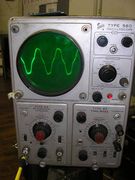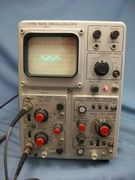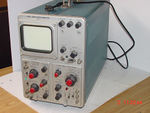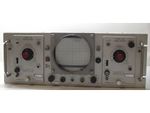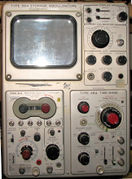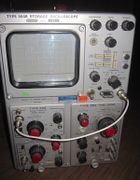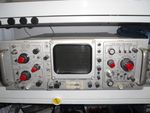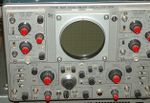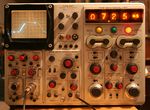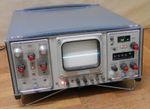560-series scopes: Difference between revisions
Jump to navigation
Jump to search
No edit summary |
No edit summary |
||
| Line 5: | Line 5: | ||
<gallery widths="150" heights="180"> | <gallery widths="150" heights="180"> | ||
Tek 560 1.jpeg | '''[[560|560 - Basic mainframe]]''' (1961) | |||
Tek 561s.jpg | '''[[561]]''' (1961) | |||
561a-2.jpg | '''[[561A]]''' (1962) | |||
Tek 561b 1.JPG | '''[[561B|561B - Solid state scope]]''' (1969) | |||
Tek rm561.jpg | '''[[RM561]]''' | |||
Tek564 front.jpg | '''[[564|564 - Storage scope]]''' (1962-1968?) | |||
564B_1_burndamage.jpg | '''[[564B|564B - Storage solid state scope]]''' (1968) | |||
R564B 1.JPG | '''[[RM564|RM564 - Storage scope]]''' (1962-1968?) | |||
Tek565-crop.jpg | '''[[565|565 - Dual-beam scope]]''', two plug-ins; built-in trigger, sweep, and horizontal amplifier (1963) | |||
567 front.jpg | '''[[567|567 - Sampling scope with digital readout]]''' (1962) | |||
568_1.JPG | '''[[568|568 - Sampling scope]]''' (1967) | |||
</gallery> | </gallery> | ||
Revision as of 05:09, 8 June 2017
The 560 series scopes which were introduced with the 560 and 561 in 1961 were tube scopes that began to introduce some solid state circuitry. They use 560-series plug-ins (exception: 560 and 561 only takes 2-series because of weak power supply).
560-series mainframes contain neither delay lines nor amplifier stages, requiring the plug-ins to drive the CRT deflection plates directly, at the disadvantage of needing to calibrate gain or sweep when swapping plug-ins.
-
560 - Basic mainframe (1961)
-
561 (1961)
-
561A (1962)
-
561B - Solid state scope (1969)
-
564 - Storage scope (1962-1968?)
-
RM564 - Storage scope (1962-1968?)
-
565 - Dual-beam scope, two plug-ins; built-in trigger, sweep, and horizontal amplifier (1963)
-
568 - Sampling scope (1967)
